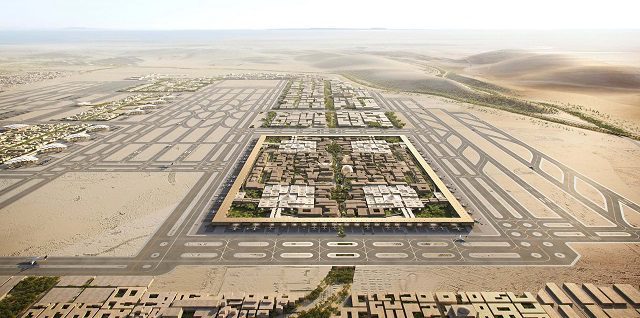23 May 2024 by Colin Foreman
Saudi Arabia’s Public Investment Fund (PIF) is gearing up to issue tenders for project management consultancy (PMC) contracts for the development of King Salman International Airport (KSIA) in Riyadh.
Three PMC contracts are expected to be tendered, covering the landside, airside, and terminal building components of the project. A fourth PMC package may be tendered at a later date. The selection of PMC firms is anticipated to occur before the main construction packages are tendered. In preparation, several contracting companies are forming joint ventures for the project.
UK-based Mace has been appointed as the delivery partner for the project, a role that involves assisting the client with project management, design oversight, cost consulting, and procurement advice. Foster + Partners, another UK firm, won the competition to design the master plan and is currently developing the concept designs for the airport’s buildings. US-based Jacobs is responsible for the infrastructure design.
Project Overview
The King Salman International Airport project will cover approximately 57 square kilometers, featuring six parallel runways and incorporating the existing terminals at King Khalid International Airport (KKIA). The development will also include 12 square kilometers of support facilities, residential areas, recreational spaces, retail outlets, and other logistical real estate.
Upon completion in 2030, the airport is set to become the world’s largest in terms of passenger capacity, with a goal of handling up to 120 million passengers annually by 2030 and 185 million by 2050. The cargo capacity target is set at 3.5 million tonnes per year by 2050.
Previous and Future Developments
Construction work on the existing terminals at KKIA has already begun. In June 2023, a joint venture between Turkey’s IC Ictas and local firm Al Rashid Trading & Contracting was awarded the contract to renovate Terminal 1 and Terminal 2. Terminals 3 and 4 were renovated earlier this year.
Saudi Arabia is investing $100 billion into its aviation sector as part of its Saudi Aviation Strategy, announced by the General Authority of Civil Aviation (GACA). The strategy aims to triple the country’s annual passenger traffic to 330 million by 2030, increase air cargo traffic to 4.5 million tonnes, and expand air connections to over 250 destinations.




